By Mark Brooks
When the Berlin wall fell in 1989, socialist economics was declared a failure, and a world spanning free market capitalist economic system ruled supreme. Then a new crisis, global warming, in part caused by capitalism’s success in creating global prosperity, created an opportunity for a rematch. Over the last decade, aviation has found itself on the front lines of a renewed generational debate between free market (capitalism) and social market economics. Then a new crisis hit and a wartime-like response to a global pandemic has forced the suspension of many of the normal checks and balances in Canada’s (mostly) free market economy.
Worldwide logistics have been disrupted and the average citizen’s connection to the global capitalist economy, air travel, has been blocked by a wall of closed borders and government-enforced “essential travel only” restrictions. Will the aviation sector be allowed to recover and reconnect Canada to the world, or will new political forces that have grown during the pandemic restrict its growth? Will the urgently-needed new airport in Pickering be a casualty of this fiery battle or allowed to move forward on the double to enhance freight and passenger logistics as part of an economic recovery?

For the last year, air travel, a key lynchpin of Canada’s free market economy, has been devastated by government-imposed restrictions. Only recently has the Canadian federal government granted aid to the aviation sector in an attempt to repair some of the damage its lockdowns have caused. As we emerge from the pandemic, an ideological battle initiated at the onset of COVID is breaking cover. Socialism is once again a global force to be taken seriously. In Canada, the Liberal and Conservative parties currently dominate the political landscape. Each was promoting a mildly different versions of a market-driven economy until the pandemic forced a massive government economic intervention.
When the pandemic ends, will normal economic life return or will Canada’s current emergency arrangement, an ad-hoc socialist market economy, morph into a new norm? Will aviation be free to continue its rapid growth in sync with a booming US and global economy or will it be inhibited and restricted by government policy?
Near Toronto, a key test of the current government’s intent is on the horizon. Will land set aside near Toronto for a badly-needed new airport instead be leased out for decades to an anointed few supporters of a local back bencher government MP? Will a local far-left lobby group, Land Over Landings, be successful in promoting a socialist style “agrarian utopia” or will free enterprise be unleashed for the greatest good of the many by building an airport? Private investors looking to invest in the new airport are knocking on the Minister of Transport’s door. Will he answer or ignore the opportunity?
To understand the strange crossroad Canadians now find themselves at, it is important to understand the new generation of Canadian voters that could tip the balance of power. Much has been written about how the rise of political movements such as Extinction Rebellion, and “Woke” Cancel Culture has grown during the pandemic. There is little doubt a new generation of Canadians voters, too young to remember the Berlin wall, has become more radicalized before and during the pandemic.
Political leaders have responded with populist, often fact-free messaging. Debates over progressive social agendas reduced to ever grander promises disconnected from economic reality. Just as worrisome, on-line censorship and marginalization of contrarian voices by some media and online forums has become normalized. Just posting a simple fact on the efficiency of air travel, and the need for a new airport in Pickering has gotten this author trolled relentlessly and banned on multiple social media sites, including on UrbanToronto.ca, a once respected local website. I am not alone.
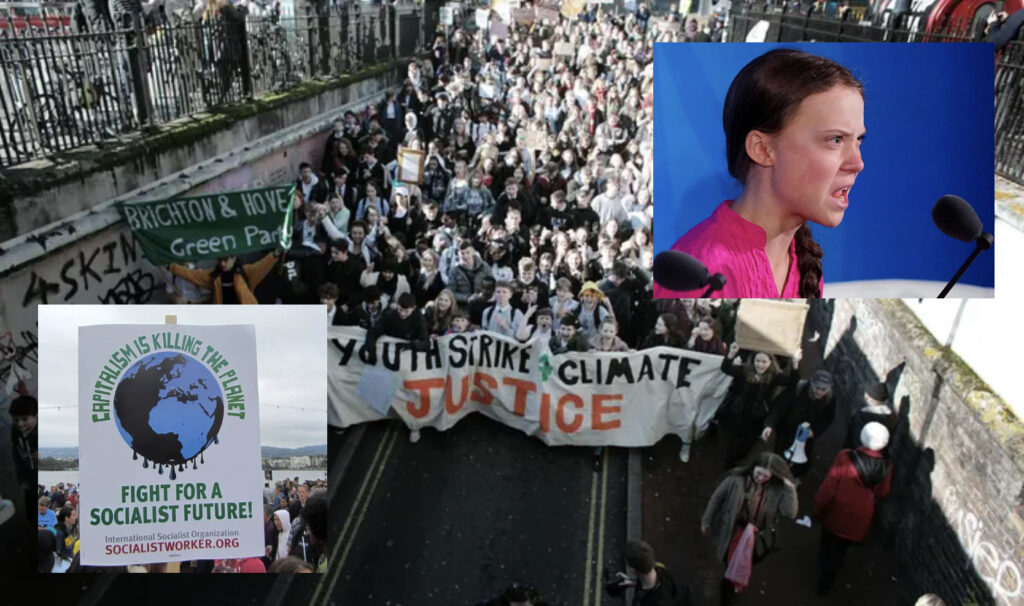
Canadian politicians of every stripe are now familiar with the often relentless trolling, disrespectful, and often abusive comments by “Social Justice Warriors” of various stripes. Trolling by a dedicated few from the far right or far left is now interfering with many MP’s ability to utilize social media to connect with voters. This was acutely felt during the September 2021 pandemic election. More than ever before, political leaders relied on Facebook, Twitter and Instagram in attempts to stay connected and make their case to voters.
Unfortunately, online media is also now being used by politicians and their supporters to spread false claims and misinformation on everything from political rivals to carbon emissions. It is even being used by some to spread false information about political rivals in the same party. The recent very public online attacks on Canada’s Green Party leader by far- left members of her own party are a good example.
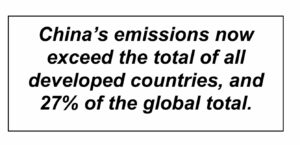
Spreading anxiety and exaggerations about carbon emissions has become a commonplace stand-in for attacking the free market economic system. This is despite the facts that China, a social market centrally-planned economy, has the fastest growing carbon emissions of any country, continuing to grow and expected to peak in the 2025-2030 timeframe.
A classic example is the continued repetition of the disproven hypotheses that contrails have a long-term threefold multiplier effect on aviation emissions. Many in the far left (including elected members of parliament) have over-reacted to fact checking by blocking online users that do not share their views or values. This has resulted in the creation of multiple social media bubbles where it is nearly impossible to determine fact from narrative. The sunny ways of open debate replaced by divisive rhetoric and censorship.
Before COVID, millennials where typically seen as an intensely politicized and often informationally bubbled generation, enabling the narrative of any story to race away from the facts with ease. In short, a fertile breeding ground for radical left-wing or right-wing ideas. It is feared that this trend is extending to the first cohorts of the subsequent generation, “Generation Z” or the “Zoomers.”. Now these radicalized young voters could play a critical role in future Canadian elections.
For the last 16 months, the checks and balances of Canadas “normal” free market economy has been over ridden by the sweeping government-mandated “temporary” closures of businesses and the creation overnight of massive government programs of dubious efficiency. Our “normal” economic policy debates have been suspended along the way, despite the increasingly vocal calls from opposition MPs. This new COVID economy is neither capitalist nor socialist, but a hybrid social market economy created out of ad-hoc emergency arrangements. Like any wartime economy it has huge waste, creeping corruption and cronyism. (Note: Canada’s Conservative and NDP opposition claim that this was present before COVID, typified by the WE scandal and SNC Lavalin affair. )
But as we attempt to return to normality, partisan ideological battles are returning with a vengeance 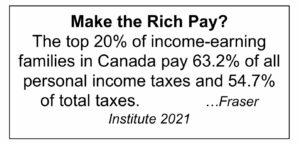 making the recent federal election especially bitter. The call from the new voices on the far left to seize the “COVID opportunity” to maintain a permanent restriction on air travel and impose a social market economy is growing. Why not make the CERB permanent, a forerunner of a new universal income program funded by new taxes on the wealthy? Why not, under the banner of climate change, continue to restrict the free flow of people and goods that air travel enables? What is wrong with the continuing to restrict international air travel to a handful of COVID-opoly airports?
making the recent federal election especially bitter. The call from the new voices on the far left to seize the “COVID opportunity” to maintain a permanent restriction on air travel and impose a social market economy is growing. Why not make the CERB permanent, a forerunner of a new universal income program funded by new taxes on the wealthy? Why not, under the banner of climate change, continue to restrict the free flow of people and goods that air travel enables? What is wrong with the continuing to restrict international air travel to a handful of COVID-opoly airports?
Direct ownership and control of the means of production by the state has always been a hallmark of a socialist economy. But in a world economy dominated by aviation and air travel, the control of the means of transportation is almost as effective. The pandemic has shown that a virtual wall of rules and restrictions can be maintained to keep people and goods inside, and foreign influences out, just like the Berlin Wall of old. Thankfully, our current government is not choosing this path, for now.
Climate change is real and must be addressed, but the anti-globalization/anti-capitalism fractions are using it to advance their not-so-hidden agenda. Globalization improves peoples’ standard of living. It fast-forwards the creation of new technologies building a more environmentally sustainable and efficient world. Countries and businesses rely on goods, expertise and services from around the world to maximize efficiency and create jobs.
What possible advantage would there be to shutting down air travel?
The world’s massive global economy is showing signs of growth once more. It has been instrumental in fighting the pandemic and will be a critical tool in fighting climate change. From new sustainable fuels, to creating cutting edge net zero carbon transportation and manufacturing technologies, the global economy can achieve net zero carbon emissions. Together, with a properly regulated and incentivized Canadian free enterprise economy, we can win the fight against climate change.
Which path will the ruling Liberal and the opposition Conservative political parties take as they court the next generation of voters? Will regulation and fiscal inducements benefit the environment in parallel with the economy? Or will it radically break from the existing Canadian capitalist economic system using climate change as an excuse? The conservative party is clear on its support for a free enterprise-driven economy with incentives to reduce carbon emissions. But the Liberal party stand is less clear.
One worrying sign came at the ruling liberal party’s recent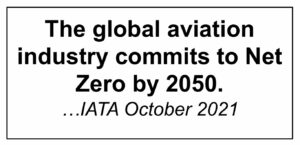 policy convention in the form of a proposal for a “national” HSR (High-Speed Rail Network) in Ontario and Quebec to replace air travel. This happened while the highly competitive and profitable, but temporarily shut down, aviation sector received not even a mention. Net-zero carbon aviation is expected to remove the environmental advantage of HSR, making it obsolete, possible even before such a network would become operational in Canada. But this does not reduce the lure of grand new government mega-programs and never-profitable mega projects to those wishing to fundamentally change the Canadian political landscape. Will air travel be restricted in favour of an ultra-expensive government funded and controlled high-speed rail system? A system that will consume large swaths of farmland or forests and will never be profitable?
policy convention in the form of a proposal for a “national” HSR (High-Speed Rail Network) in Ontario and Quebec to replace air travel. This happened while the highly competitive and profitable, but temporarily shut down, aviation sector received not even a mention. Net-zero carbon aviation is expected to remove the environmental advantage of HSR, making it obsolete, possible even before such a network would become operational in Canada. But this does not reduce the lure of grand new government mega-programs and never-profitable mega projects to those wishing to fundamentally change the Canadian political landscape. Will air travel be restricted in favour of an ultra-expensive government funded and controlled high-speed rail system? A system that will consume large swaths of farmland or forests and will never be profitable?
Another worrying sign is the refusal of the current government to exempt SAF (Sustainable Aviation Fuel) blends from the new carbon tax. SAF, sometime called e-fuel, is ramping up production in North America and is expected to help existing jet aircraft to achieve net carbon zero emissions. IATA predicts SAF will eliminate 65% of aviation emissions by 2050. If the goal of Canada’s carbon tax is to reduce emissions, then applying this tax to SAF is counterproductive. Ditto for the new luxury tax on new more efficient aircraft. While being billed as taxing the people the government thinks are rich and privileged, it is expected to also slow aviation’s path to net carbon zero. To the casual observer these policies seem directly aimed at halting Canadian aviation’s progress towards reducing emissions and undercutting aviation’s economic role.
At this crossroads, a new block of young voters could make the difference. Will the promise of government “Big Daddy” programs and mega projects lure these voters away from supporting a proven and efficient free market economy? Will policies sold on the promise of taxing the wealthy and fighting climate change hurt aviation and stop our economy from achieving net carbon zero emissions? Is this “the voice of a new generation,” or are just the loudest voices pushing a radical left agenda amplified on social media?
Canada is not alone at this crossroads. As reported in the National Post, a poll done by Britain’s Institute of Economic Affairs found that the overwhelming majority of “the new millennial/zoomer voter demographic express stridently anti-capitalist views”. Yet oddly “Large numbers of people simultaneously agree with an anti-capitalist and a pro-capitalist statement on the same subject, apparently without noticing the contradiction.”
 None of this means that Canada is full of aviation-hating young Marxist-Leninists revolutionaries. Pre-COVID, nothing could be further from the truth. In 2019, Canada was an economic powerhouse working in sync with the world’s largest free market economy, The United States of America. By choice, the current government and most Canadians have supported a progressive trade agenda including a North American free trade arrangement that has brought prosperity and opportunity across Canada. The free flow of people and capital between the two nations is a classic example of what one far left anti-aviation group, staygrounded.org, calls a “hyper mobile global capitalism”. The free flow of people and high value goods by air is at the heart of North America and global economic prosperity. It is this prosperity that is funding the technology advances key to flighting climate change.
None of this means that Canada is full of aviation-hating young Marxist-Leninists revolutionaries. Pre-COVID, nothing could be further from the truth. In 2019, Canada was an economic powerhouse working in sync with the world’s largest free market economy, The United States of America. By choice, the current government and most Canadians have supported a progressive trade agenda including a North American free trade arrangement that has brought prosperity and opportunity across Canada. The free flow of people and capital between the two nations is a classic example of what one far left anti-aviation group, staygrounded.org, calls a “hyper mobile global capitalism”. The free flow of people and high value goods by air is at the heart of North America and global economic prosperity. It is this prosperity that is funding the technology advances key to flighting climate change.
Many new young voters that have benefited from government handouts during a vulnerable time in their lives. For most young Canadians, support for “big government” is not necessarily a deeply held conviction. Increased support for socialist economic policies may just reflect a COVID-induced familiarity: people express agreement with these policies because they are familiar with them and have not yet reckoned with the true economic and future opportunity costs.
One encouraging sign: Before the election, instead of announcing a grand HSR system, the new transportation minister announced partial funding for a HSF (High Frequency Rail) system. A HFR system would cost only $6 billion (a fraction of a HSR system), utilize existing rail lines such as the Havelock line that would support and work in harmony with a new airport in Pickering. More telling was how the funding for HFR is structured. The federal government announced support for $500 million with the rest of the $6 billion needed to be provided in coordination with private sources, and only then if VIA rail could find investors who deemed the project worthy.
Other recent funding announcements from the federal government, nicely timed for a late summer election, are also telling. This includes $440 million in support of new research and development of private sector aviation technology including hybrid electric aviation power train technology. Provincial governments, frustrated with the lack of federal support, are moving ahead on the development of SAF. The Quebec government and Airbus just announced support for a new SAF plant. It will produce 30 million litres a year of SAF…just a fraction of what the province will need but a good start.
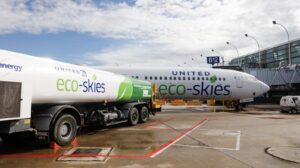
Canadian aviation used 8 billion litres of fuel in 2019. Replacing this with SAF will be an epic challenge. In 2019, Canada produced only 385 million litres of bio-diesel fuels of all types. In comparison the United States produced 2.5 billion gallons, or 9 billion litres of bio- diesel. Given these figures, it is clear that ramping up to produce enough SAF to make Canadian aviation carbon neutral is a daunting task. Bio-diesel is easy to produce in small quantities and can power existing commercial aircraft but it is hard to ramp up to the quantity needed. Creating liquid SAF fuels using electrical energy and water/carbon feed stock is much harder to do technically but potentially easier to ramp up. Even with new-found government incentives it could take decades to become self-sufficient in SAF production. But Canada has the potential to become a SAF producing superpower enabling both itself and the world to reach net zero carbon by 2050.
Will the current Canadian Liberal government continue to support the growth of aviation and encourage the industry to achieve its carbon neutral goals, through financial incentives? Or will it give in to the new young far-left voices inside the liberal party? While most Canadians may still believe capitalism is a lot better than the alternative, it is time to recognize that there is a communication and policy challenge by young voters lost in a sea of misinformation.
Thirty years after the fall of the Berlin wall, the case for aviation’s role in connecting Canada to a hyper-mobile global capitalist world economy needs to be made anew and won anew with each generation of voters. The temporary barriers created to fight a pandemic must not be allowed to be perverted into becoming a permanent wall restricting a free market and the freedom of movement of Canadians. Aviation growth and a new Airport in Pickering will be a key part of Canada’s future. Let us encourage our talented young engineers and entrepreneurs to make aviation sustainable.
Related Posts:
References:
1) A NASA Contrail science review – On the Trail of Contrails
Kristian Niemietz: Battle for capitalism must be won again | National Post
Microsoft PowerPoint – 1.1 Jane Hupe FINAL – Setting the scene and All Panelists.pptx (icao.int)
Trudeau partners with Quebec to announce $693 million to revive Canada’s aerospace sector | CTV News
Fabulous article Mark. Interesting observations about the rise of socialism in the west, never really made the connection. It’s scary.